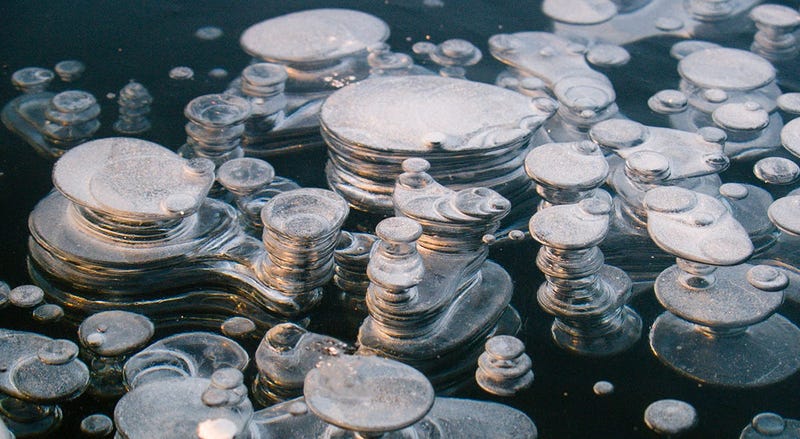
Unless it’s frozen or flaring, we rarely see or even smell methane. But the chemical compound (CH4) surrounds us:
“Methane bubbles up from swamps and rivers, belches from volcanoes, rises from wildfires, and seeps from the guts of cows and termites (where is it made by microbes). Human settlements are awash with the gas. Methane leaks silently from natural gas and oil wells and pipelines, as well as coal mines. It stews in landfills, sewage treatment plants, and rice paddies.”
It’s definitely a naturally-occurring compound, but the U.S. Environmental Protection Agency identifies it as the second-most prevalent greenhouse gas emitted in the United States from HUMAN activities. It’s the main component of natural gas: the EPA estimates that the oil and gas industry contributes about a third of the United States’ overall methane emissions.
Carcinogens. Shallow breaths, people.
The Clean Air Council has made methane capture in Pennsylvania’s energy industry a high priority. "Pennsylvania is the second-largest natural gas producing state in the country, just behind Texas,“ according to Philadelphia CAC staff attorney Robert Routh, so clamping down on escaping methane would mean measurably cleaner air, retained gas inventory, and jobs to monitor the infrastructure as well as plug the leaks… while keeping some of that heat-trapping greenhouse gas out of the atmosphere.
Environmentalists all over the state are lobbying to get methane controls enacted for all oil and natural gas infrastructure.
The Environmental Defense Fund has launched a public service campaign to encourage citizens across the Commonwealth to reach out to Governor Wolf to encourage meaningful and effective methane regulations.
If all that vented methane is making you mad, you can vent to the Governor by phone at 717/787-2500 or social media @GovernorTomWolf.
Environmentalists all over the state are lobbying to get methane controls enacted for all oil and natural gas infrastructure.

